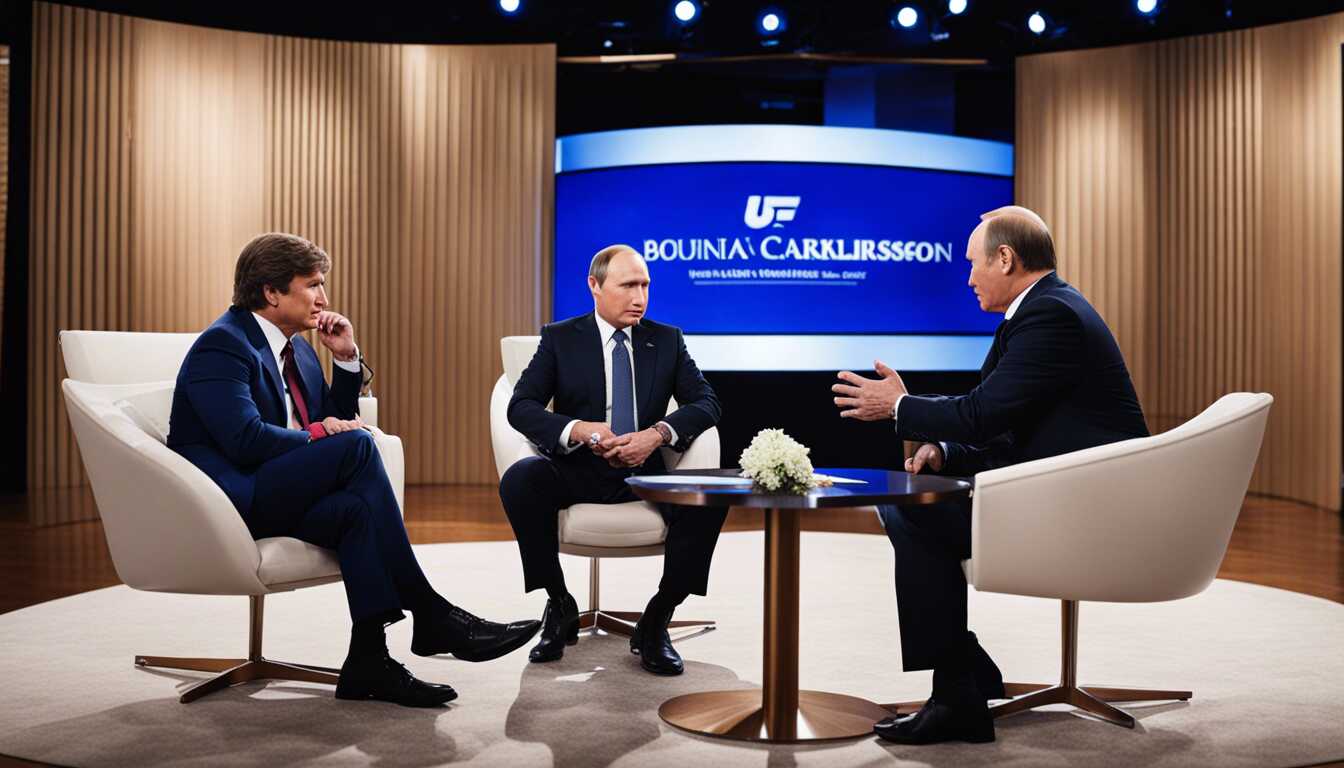
Putin grants interview to pro-russian tucker Carlson as traditional media faces rejection

In a surprising move, the Kremlin has confirmed that Russian President Vladimir Putin granted an interview to the former Fox News host, Tucker Carlson. However, this comes as a stark contrast to Carlson's claim that no Western journalist had sought to interview Putin throughout the ongoing conflict between Russia and Ukraine. Dmitry Peskov, the Kremlin spokesperson, clarified that numerous interview requests had been received from major Western media outlets, mostly traditional TV channels and large newspapers.
Impartial coverage rejected
Rejecting the notion of impartial coverage, Peskov highlighted the refusal of traditional media to appear unbiased, which led to the rejection of their interview requests. This statement is juxtaposed against Carlson's known pro-Russian stance regarding the conflict, as evidenced by his history of espousing pro-Russian viewpoints and even declaring his support for Russia during heightened tensions with Ukraine in 2019.
Kremlin's directive and Carlson's approach
Furthermore, an obtained Kremlin memo revealed a directive for state-controlled media to extensively feature segments of Carlson's broadcasts due to his criticism of the United States and NATO, aligning with Russian narratives. This aligns with Carlson's upcoming interview with Putin, raising questions about his approach and the potential scrutiny put forth.
Evasion of scrutiny
The refusal to engage with most Western media outlets is not solely driven by accusations of bias; rather, it reflects an attempt to evade legitimate scrutiny of the Russian government. This is especially pertinent given the accusations of war crimes and human rights violations committed by Russia in Ukraine, as well as the Kremlin's track record of targeting political dissidents and critics.
Press freedom and Carlson's alignment
As American journalists remain imprisoned in Russia and media outlets face shutdowns due to fear of reprisals, Carlson's interview with Putin underlines the broader context of Russia’s crackdown on press freedom. The absence of critical engagement with the Russian government brings to question Carlson's alignment with the Kremlin's messaging and his approach in the forthcoming interview.
Challenges and implications
The Kremlin's choice to grant an interview to Carlson, known for his softball approach to controversial figures, suggests an opportunity for Russia to convey its narrative to american audiences. This development raises concerns about the potential for Carlson's interview to address critical issues and hold Putin accountable for his government's actions, especially given the context of intensified crackdowns on press freedom and credible allegations against Russia in the ongoing conflict. In essence, while Carlson's interview with Putin may offer insight into the Russian leader’s perspective, it also underscores the broader challenges faced by traditional media in securing interviews with high-profile figures, and the potential implications of such selective engagement on the public’s understanding of global affairs.
Share news















